South Africa Files Case Against Israel at the International Criminal Court A Significant Step Toward Achieving Justice for Palestine
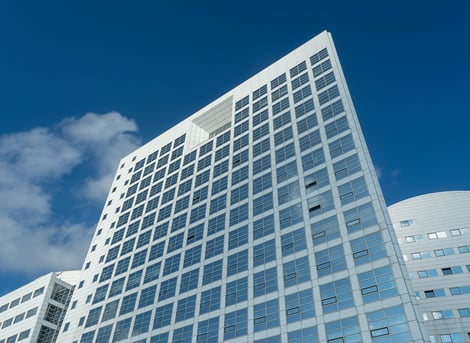

Since the establishment of the ICC, Israel has consistently refused to cooperate with it, arguing that the court is not competent to prosecute its citizens and that the Palestinian issue is a regional conflict that should be resolved through peace talks rather than international institutions. Despite the ICC issuing arrest warrants for some Israeli officials, Israel has refused to cooperate, arguing that the ICC represents a threat to its sovereignty.
This position raises questions about whether the ICC is capable of holding powerful states accountable, especially those with significant political influence like Israel. This represents a major challenge to the court’s effectiveness in achieving international justice.
South Africa has filed a landmark case against Israel at the International Criminal Court, accusing it of committing apartheid and other grave human rights abuses against Palestinians. This legal action highlights South Africa's commitment to fighting injustice and holding Israel accountable for its violations in Gaza and the West Bank. The case focuses on apartheid policies, illegal settlements, and war crimes, marking a crucial moment in the international fight for justice and accountability in Palestine.
South Africa is one of the most prominent countries that fought a long battle against racial discrimination and social injustice, with its historical experience in the struggle against apartheid being a major turning point in world history. South Africa's history is closely tied to the Black liberation movement and the fight against apartheid, the racist system that dominated the country for decades.
Among the most prominent figures representing this glorious history is Nelson Mandela, the leader who led the struggle against the apartheid system and ultimately achieved a great victory. Mandela, who led the African National Congress (ANC), spent 27 years in prison for his participation in anti-apartheid activities, but his determination remained unshaken in his quest to abolish apartheid laws and establish justice and equality for all South African citizens.
In 1994, Mandela’s dream was realized when he became the first democratically elected Black president in South Africa’s history, marking the beginning of a new era of freedom and equality. Mandela became a global symbol of peace and reconciliation, and under his leadership, South Africa became an example of the fight against injustice and racial discrimination worldwide.
South Africa The History of Struggle Against Racism and Advancing Human Rights on the International Stage
Historical Stance of South Africa
South Africa’s history of combating racism is ongoing, as the country remains one of the strongest defenders of human rights on the international stage. It continues to issue sharp criticisms against policies that violate human dignity. In this context, South Africa filed a lawsuit against Israel at the International Criminal Court (ICC) in 2024, accusing Israel of committing genocide and crimes against humanity in Palestine and its involvement in apartheid-like policies against Palestinians in Gaza and the West Bank.
This case represents a continuation of South Africa’s commitment to defending human rights internationally, especially in light of its historical connection to issues of racial discrimination and the liberation movement. Through this lawsuit, South Africa aims to emphasize the importance of international accountability for regimes that commit severe human rights violations anywhere in the world.
South Africa, which had suffered from an internal apartheid system in the past, is now undergoing a significant transformation in its international role. Its stance on the Palestinian issue is not only a defense of Palestinian rights but is seen by many as a continuation of South Africa’s global fight against apartheid. South Africa’s position has received the support of numerous countries that see accountability for Israel's actions as essential for achieving international justice.
Human rights advocates such as Human Rights Watch and Amnesty International have supported this lawsuit, considering it a step toward ending impunity and strengthening human rights in Palestinian territories. This lawsuit is part of broader international efforts to hold Israel accountable for the crimes it has committed against Palestinians in the International Court of Justice.
Legal Basis for the Lawsuit
The lawsuit filed by South Africa at the International Criminal Court focuses mainly on accusations of genocide, a blatant violation of international human rights law. South Africa bases its case on a range of evidence and testimonies pointing to Israeli government involvement in inhumane practices against the Palestinian people, including:
Apartheid: Israel is accused of implementing apartheid-like policies similar to those practiced by South Africa in the 20th century. These policies include laws that discriminate against Palestinians, such as restrictions on movement, land division between Palestinians and Israeli settlers, and treating Palestinians as second-class citizens.
Racial Discrimination: Israeli policies that aim to discriminate against Palestinians in various aspects of daily life, including education, healthcare, and housing, as well as unequal application of the law, with Israeli settlers in the West Bank treated differently from Palestinians.
Crimes Against Humanity in Gaza and the West Bank: The lawsuit refers to a series of Israeli military attacks in Gaza and the West Bank, which resulted in the deaths of large numbers of Palestinian civilians. These attacks included airstrikes and massacres committed by Israeli forces in Gaza, part of an ongoing campaign targeting civilians, constituting crimes against humanity.
Settlement Expansion in Palestinian Territories: The lawsuit also points to Israel's continued construction of illegal settlements on Palestinian land in the West Bank and East Jerusalem, a direct violation of United Nations resolutions and international agreements like the Fourth Geneva Convention.
Previous Cases at the ICC
The Palestine Case (2015):
Details: In 2015, the State of Palestine filed a request with the International Criminal Court to investigate war crimes committed by Israel, including military operations in Gaza in 2014, as well as Israeli settlement activities in the West Bank.
Developments: In 2019, the ICC opened a preliminary investigation into possible crimes committed by both Israel and Hamas during the Israeli-Palestinian conflict, including airstrikes, military massacres, and settlement expansion.
Progress: In 2021, the ICC decided there was a basis to open an official investigation into war crimes in the occupied Palestinian territories, including actions by both Israel and Hamas.
South Africa's Case Against Israel (2024):
Details: In 2024, South Africa filed a lawsuit at the ICC against Israel, accusing it of committing genocide and crimes against humanity in Palestine, based on charges related to apartheid policies and war crimes in Gaza and the West Bank.
Developments: This lawsuit comes at a critical time, with escalating regional tensions and human rights concerns in the occupied Palestinian territories, and is seen as a significant step toward international accountability for Israel.
Reports and Demands from Human Rights Organizations:
Human Rights Watch and Amnesty International: These organizations regularly submit reports to the ICC on violations committed by Israel in the occupied Palestinian territories. However, these reports have not led to direct legal action against Israel in the court.
Palestinian Organizations: Some Palestinian human rights groups have called on the ICC to investigate Israel’s war crimes, including settlement expansion in the West Bank and attacks on Gaza.
Jordan’s Request (2014):
Details: In 2014, Jordan made an official request to the ICC to investigate war crimes committed by Israel during the Gaza attack in 2014. However, this request did not lead to an official lawsuit against Israel.
Informal International Legal Campaign:
Details: In recent years, several countries and NGOs have attempted to bring charges against Israel in the ICC, but these attempts have not led to formal legal action against Israel.
The ICC Case on "Operation Cast Lead" (2008-2009):
Details: After Israel’s "Operation Cast Lead" in Gaza in 2008-2009, which resulted in hundreds of Palestinian deaths, many countries and organizations called for an investigation into war crimes committed by Israeli forces. Despite repeated demands, no formal investigation was launched by the ICC at that time.
Developments: In 2010, Palestine requested an investigation into these crimes, but the ICC did not begin an official inquiry into this case.
Legal Precedents in European Courts
Before South Africa’s lawsuit at the ICC, there were several cases filed against Israeli officials in European courts. For example:
In 2009, Belgium’s court filed charges against then-Israeli Prime Minister Ehud Olmert and other Israeli officials for committing war crimes in Gaza. Initially, the court ruled it had jurisdiction, but the Belgian government intervened and annulled the decision due to political pressure.
In 2015, the UK courts decided that lawsuits could be filed against Israeli officials for war crimes in Gaza, particularly regarding the 2014 Israeli operation "Protective Edge." However, the case was not finalized due to the lack of cooperation from Israeli authorities.
In France, an investigation was opened against Israeli military personnel for the 1996 Qana massacre, in which dozens of Lebanese civilians were killed in an Israeli airstrike. This case represents a step toward holding Israeli officials accountable for crimes committed in conflict zones.
Challenges Facing the International Criminal Court
The filing of South Africa’s lawsuit at the ICC represents a major test for the international system and highlights the challenges the court faces in holding Israel accountable, especially given the ongoing support Israel receives from the United States. The U.S., Israel’s main ally, has made several efforts to block any formal investigations into Israel at the ICC, even withdrawing from the Rome Statute in 2002, which established the ICC.
Political pressure against the ICC may affect its credibility and its ability to prosecute Israeli officials implicated in the alleged crimes. This raises concerns about whether the ICC will be able to enforce its decisions effectively if Israel refuses to cooperate with arrest warrants or investigations.
Israel’s Rejection of Cooperation with the ICC
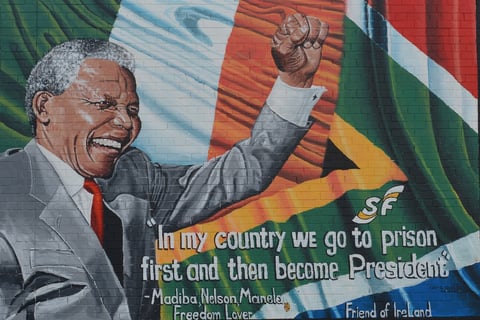

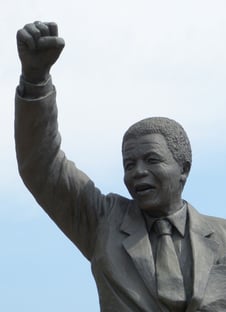

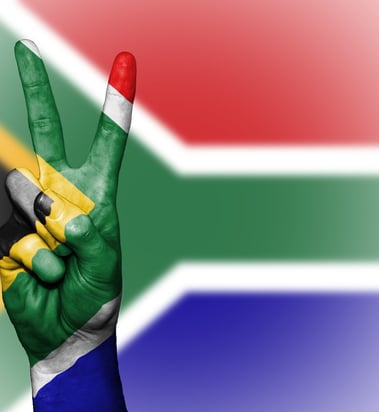

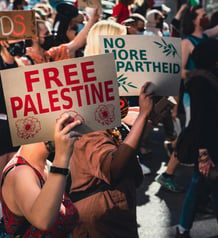

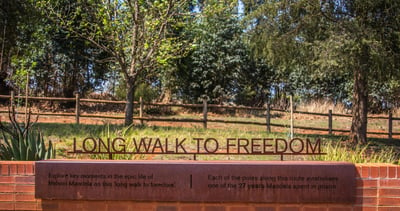

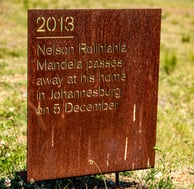

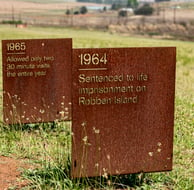



South Africa Takes Legal Action Against Israel
A Groundbreaking Case at the ICC Over Apartheid and Human Rights Violations
If South Africa’s lawsuit against Israel is taken seriously by the ICC, it could set a historic precedent in the court’s trajectory. This ruling could have a significant impact on the future of the ICC as an independent judicial body. It would require strong political support from UN member states to ensure the court’s decisions are implemented and protected from political pressure and international threats.
Political consequences may arise if the court rejects or delays action against Israel. This could fuel anti-ICC sentiments in certain major countries, harming its credibility and limiting its ability to hold any state accountable, including Israel.
The case of South Africa against Israel at the ICC marks a turning point in the court’s history, as it presents a true test for international justice in situations of grave human rights violations. The coming years will reveal whether this case will lead to the long-awaited accountability or whether it will be hindered by political factors.
References
International Criminal Court - Official Website
Rome Statute of the International Criminal Court, United Nations
Slobodan Milosevic Trial, International Criminal Tribunal for the former Yugoslavia (ICTY)
South Africa’s ICC Case against Israel, Al Jazeera
U.S. Opposition to the International Criminal Court, U.S. State Department
